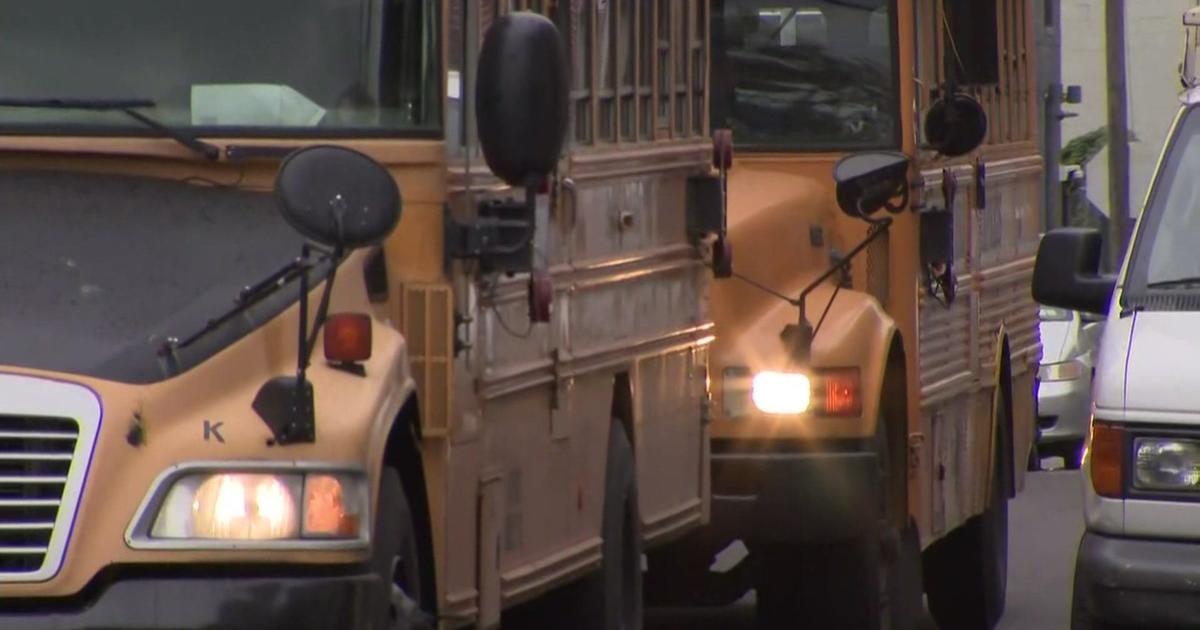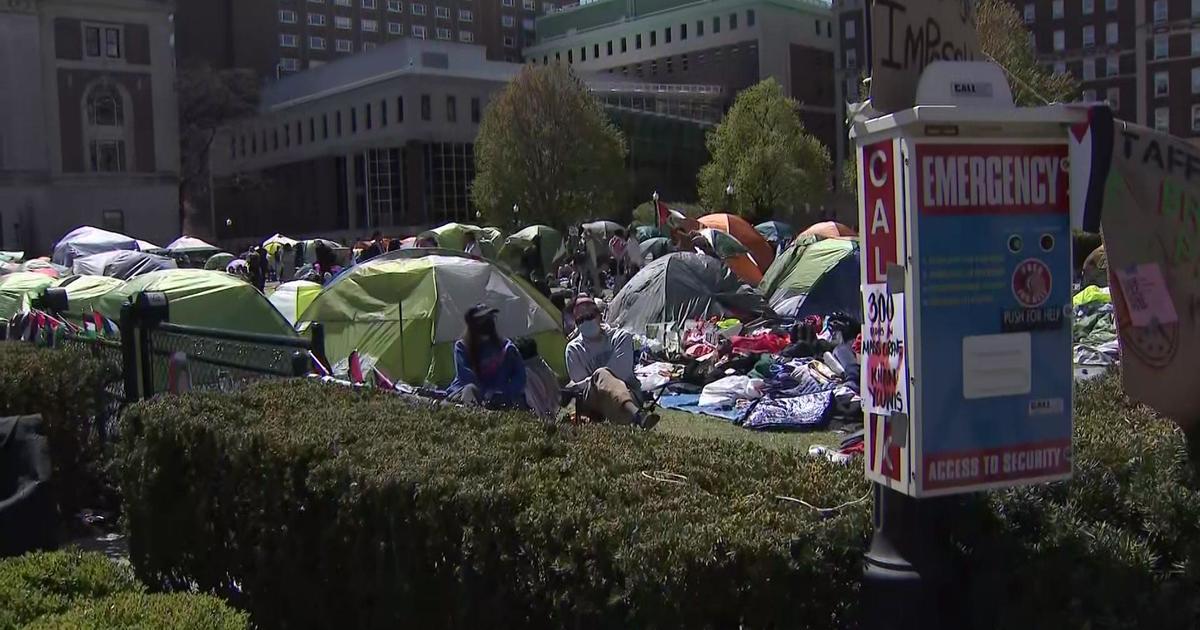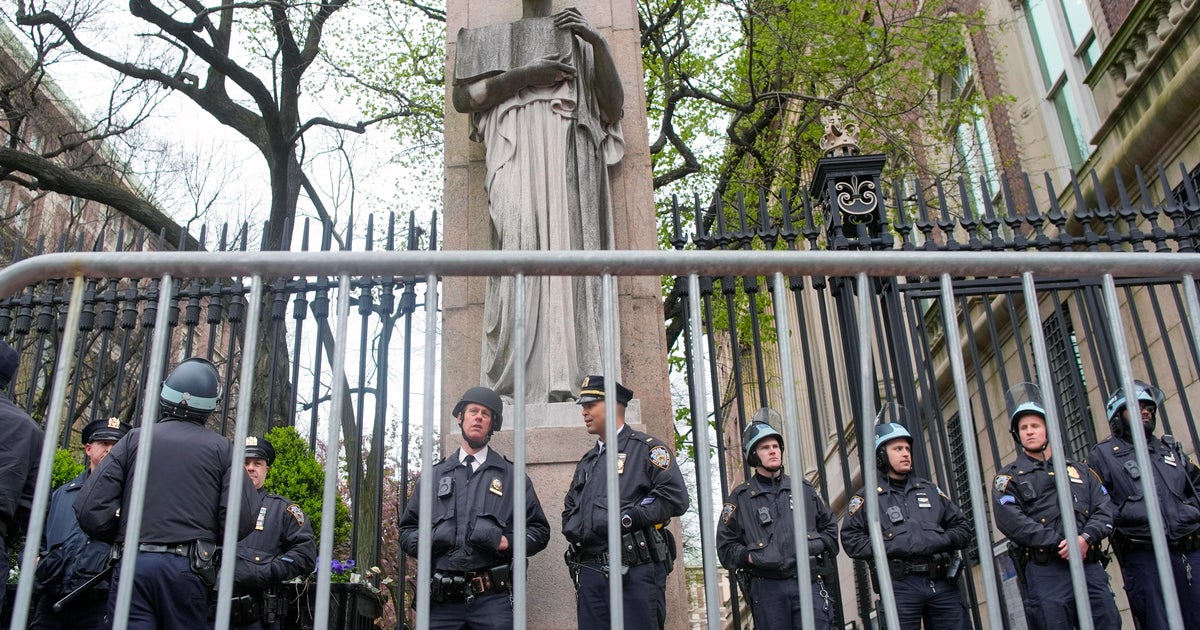Killer Tide: Recovery High Schools Provide Safe, Supportive Learning Environments
NEW YORK (WCBS 880) -- Each day in the United States, 1,100 teenagers start using pain pills, according to government data.
In response, states have created safe learning environments for recovering teens.
State Sen. Ray Lesniak led the charge to establish New Jersey's first and only recovery high school.
"There are thousands of children who are using alcohol or drugs as we speak. And recovery schools in other states have shown that when these children are taken out of their environment – the people, places and things from which they started using – they have a much better chance of getting sober and staying sober. And getting an education," he tells WCBS 880's Marla Diamond.
The Raymond J. Lesniak Recovery High School is Roselle, Union County provides peer support, not peer pressure.
Pamela Capaci is CEO of Prevention Links, the non-profit community organization that created the high school.
"A lot of the supports that are out there now are really geared toward the 18 to 25-year-old. We're looking at the 14 to 18-year-old population, 19-year-old, and that's a rocky terrain without drugs," she says.
Students work toward a degree or catch up after taking time off for detox and recovery.
"We have a computer lab, we are an integrated learning environment, so our kids have an online and offline academic program. There are teachers there. There are classrooms," Capaci says. "And in addition to that, we have a section where our recovery support services take place."
Morgan Thompson is the high school's program coordinator. As a recovering addict, she understands what the students are going through.
"The cravings with heroin addiction are so intense, and with other drugs. You could be having a great day, you went to a meeting, you had a good night, you come in the next day and boom – it hits you like a ton of bricks. You can't get it out of your mind. How are you supposed to sit at a desk and be present in school if you're dealing with these cravings?" Thompson says. "And so that's the great thing about having these supports right there – people who understand it, who get it – to provide support to a student right there in the moment."
Learn More: Killer Tide. The Opioid Epidemic
Students come from various backgrounds with different addictions.
"Alcohol, marijuana and benzos, like Xanax," one student, named Sylvia, tells Diamond.
She began experimenting when she was a freshman in high school.
"It's like a really normal thing for people to do, and some people can do it recreationally, some people can't. And it just becomes an everyday thing," she says. "Then as I kept using, it started to progress to worse drugs. I didn't care what anyone thought. I would take money from my parents just to get the drugs. I would be out all the time, lying. And my parents were so worried about me, they didn't trust me at all."
A mother, Sue, tells Diamond she had a similar experience with her daughter, Lisa.
"At one point early on, we were trying to ground her, and my husband blocked the back door and I blocked the front door, and this little tiny girl was attacking us. It was a real struggle to get her into treatment and to keep her in treatment," she says. "We went to court, we went to family court. And Lisa finally agreed to go into an in-patient program. And she was in an in-patient program for six months. And even in the beginning of the program, she fought that, she fought them."
Each year more than 300,000 teens get treatment for addiction. But once they've gone through it and return home, they often face the same triggers that got them into trouble. They're outnumber by adults at self-help meetings.
When Lisa returned from treatment, her mother was terrified.
"It's August, right before her senior year of high school, and my husband and I are faced with the idea of: Do we send her back to all her friends she was using with, to all the places she was using? Or do we send her somewhere else, and where is safe?" she says.
The high school's goal is to provide the ongoing support that is crucial to recovery.
"I can just come back on Monday and just process how I'm feeling. And I can also call Morgan and Sabrina whenever I want, if I'm feeling really triggered and I feel like I want to use," Sylvia says.
Capaci says the high school does random drug testing one to two times a week, but relapses are handled on a case-by-case basis.
"Our policy is you have to have a willingness to be clean and sober. And we understand that that shows up at 100 percent some days and 10 percent other days, but the willingness has to be there, and then we're going to work with you," she says. "So that's really our policy."
Sue's daughter, Lisa, was the first graduate of the recovery school. She is now in a sober dorm at Rutgers University.
"She's doing beautifully, she's doing beautifully," Sue says, adding the school saved her daughter's life.
Sylvia's mother, Jennifer, feels similarly about the school. She says Sylvia is a new person.
"There's so much support here -- the teachers, the mentors – there's so many people here that you feel like you're in a really full environment," she says. "And there's so much support, even for the parents."
Sylvia will graduate in June and is going on to college.
"I applied to six schools, which honestly that probably would have never happened if I was still using," she says. "I wouldn't have had the motivation and the support to get myself to where I am now."
A few months after the interview, Sylvia received an acceptance letter to Montclair University. Her career goal is to become an addiction specialist.



